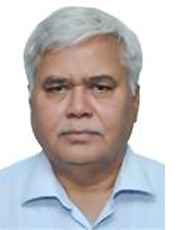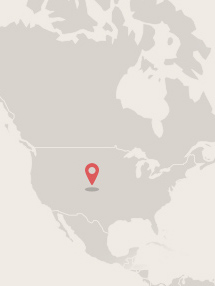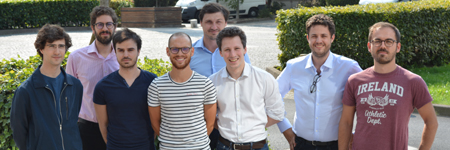 |  Why the net neutrality debate remains relevant Why the net neutrality debate remains relevant
On June 13 this year, BEREC and TRAI released a joint statement on net neutrality.
Why was it important for the two bodies to come together on this issue? For a variety of reasons, and especially due to the interplay of opposing tensions inherent in the policy:
1. Net neutrality is easy to explain in the inexact language of everyday use. But difficult to describe with the precision that would stand up to legal scrutiny.
2. Any deviation from the principle is blasphemy to its supporters, but the policy must admit exceptions in practice. Even Tim Wu’s seminal paper brings that out.
3. There can be a desire to allow exceptions where the objective is benevolent. Yet, the same exception could, and often does, lead to pernicious outcomes in identical other cases.
An effort to find common ground, and also appreciating the differences, deepens our understanding of the nature of the problem. For instance, BEREC favours the case-by-case, ex post approach to zero rating, whereas TRAI has opted for an ex-ante ban. But in India, the low prices of data and generous usage caps make marginal use of data zero-rated anyway!
The Joint Declaration and the MOU signed at the 35th BEREC Plenary would help regulators in Europe and India work together in developing tools for monitoring the violations and in sharing data. This collaboration is necessary not only for enforcement actions but also for developing policy more suitable for pipes that are no longer dumb.
Net neutrality is to data pipes what an alloying element is to physical pipes: protects the pipes from the build-up of corrosion, thus keeping them clean and robust.
TRAI Chairman RS Sharma

|  |
 |
Regulation in action
Arcep publishes its first quarterly scorecard on the New Deal for mobile
What is the New Deal for mobile?
In January 2018, Arcep and the Government announced a “New Deal for mobile”. The Government made regional digital development a priority in the terms and conditions set for mobile frequency allocations, along with commitments from operators to accelerate the pace of 4G rollouts and ensure ubiquitous, high standard coverage in Metropolitan France. The aim is not only to strengthen national coverage obligations listed in existing licences (step up 4G coverage, improve both coverage of transport routes and indoor coverage), but also to target rollouts that are in line with the regions’ actual and local needs. Here, the targeted coverage scheme requires every operator to cover 5,000 new locations where the Government and local authorities have identified a need for regional digital development. Arcep will be writing these commitments into the terms of 900 MHz, 1800 MHz and 2100 MHz frequency licences in the coming weeks.
Six indicators to track the progress of operators’ commitments
The scorecard for the New Deal for mobile and the interactive maps that Arcep has posted online deliver a both national and local snapshot of operators’ progress in meeting their commitments. Quarter after quarter, you can keep track of operators’ progress in each of the six areas of the New Deal for mobile, which are:
- “4G for all”;
- “Targeted coverage”;
- “Indoor coverage”;
- “In-car 4G”;
- “Mobile network status”;
- “Fixed 4G”.
Check back in late September to get the updated scorecards!
Scorecard for the New Deal for mobile (in French)
|  |
 |
|
On our radar
| |
Paula Forteza
Deputy for French people from Latin American and the Caribbean, Paula Forteza co-chaired a joint National Assembly and Senate working group devoted to drafting a “Charter of rights and freedoms for the digital era” which has constitutional value – a text that was rejected during the National Assembly’s constitutional reform review. The Senate will re-examine the draft reform it the autumn.
In a an article published in “Le nouveau magazine littéraire” (in French) Arcep Chair, Sébastien Soriano, expressed his support for including digital rights in the Constitution.
| 
|
|
| |  | |
News from around the world
Facebook scraps its Aquila drone project… but hands over production to Airbus
An initiative launched in 2014, the Aquila drones designed by Facebook were to deliver internet access to the world’s most hard to reach regions, thanks to a 4G LTE signal on the ground.
If Facebook announced in late June that it was halting production of these drones, it has not pulled the plug on its project. Connectivity in remote areas remains a crucial issue for the company, but it has elected to hand it over to one of the project’s manufacturing partners. The technology has made tremendous strides since 2014, and other companies have gained greater experience than Facebook in this area. It therefore chose Airbus to produce the drones from now on.
|
| |
 |
Meanwhile in Brussels...
The European Commission has just fined Google €4.34 billion for abuse of dominant position. A record fine that marks the end of an inquiry launched three years ago by Margrethe Vestager, European Commissioner for Competition.
In the crosshairs is the Android operating system. Google imposes illegal restrictions on Android device makers and mobile operators, to strengthen its search engine’s dominant position: for instance, Google obliges manufacturers to preinstall Google Search and Google Chrome on Android devices.
This is a landmark decision from the Commission as it affects innovation and, beyond that, every consumer’s freedom and freedom of choice. Arcep Chair, Sébastien Soriano, shared his reaction to the decision in a Medium post, following through on the report that Arcep published in February 2018, “Devices: the weak link in achieving an open internet”.
Google must put an end to these practices within 90 days. The company has appealed the decision.
A few figures: In 2017, Android had a roughly 85.9% share of the mobile OS market, compared to 14% for Apple’s operating system, iOS, and 0.1% for all the other OS. More than 1.3 billion Android smartphones were sold in 2017, compared to around 215 million for iOS, and 1.5 million for the other operating systems. (Sources: Gartner)
Read Sébastien Soriano’s post on Medium (in French): “Android decision: how smartphones took control, and how to get it back.”

|  |
 |
Arcep, telling it like it is
 In spring 2018, the Government solicited Arcep to examine the legally binding commitments proposed by Orange and SFR, for deploying fibre to the home (FttH) networks in more sparsely populated areas covered by private initiative (those parts of the country where the Government has issued a call for investment letters of intent, called “zones AMII” in French).
In spring 2018, the Government solicited Arcep to examine the legally binding commitments proposed by Orange and SFR, for deploying fibre to the home (FttH) networks in more sparsely populated areas covered by private initiative (those parts of the country where the Government has issued a call for investment letters of intent, called “zones AMII” in French).
The areas for which operators have made their commitments cover more than 3,600 municipalities, corresponding to around 13.6 million premises (homes and businesses):
- Orange is proposing to cover 100% of the premises in the areas targeted by its commitments by 2022, or 2,978 municipalities representing around 11.10 million premises.
- SFR is proposing to cover 92% of the premises in the areas targeted by its commitments by the end of 2020, or 641 municipalities representing around 2.5 million premises, with the remainder able to be “passed on request”.
What is involved in Arcep’s close examination of these commitments?
The role of Arcep’s “Optical Fibre” Unit was to ensure that the operators’ proposed commitments were solid and could be properly verified by the Authority over time.
The first goal was to ensure that these proposed commitments were concrete enough that Arcep could then fulfil its supervisory role, if they were accepted by the Minister.
The team’s work consisted of checking that the proposed commitments could be assessed on a regular basis using precise (and technical!) rollout indicators. After a constructive dialogue that led to new proposals from Orange and SFR, Arcep was able to issue two favourable opinions in mid-June 2018. Arcep’s conclusion: these new proposed commitments complete one another, and are now in line with a policy of achieving consistency between shared networks. It nevertheless underscored the considerable acceleration in the pace of rollouts that would be required to meet these commitments.
The Government then announced that it planned to accept these opinions. Once the orders are published, Arcep will be responsible for ensuring the operators’ compliance, within the set timeframe. The Authority will publish regular updates on the rollouts’ progress, though its cartefibre.arcep.fr map tool, in addition to monitoring local applications of the commitments, which will give the regions more clarity.
Arcep’s “Optical Fibre” Unit
J. Bonan, A. Laroche, J.-B. Benoit, C. Bernez, B. Collet, A. Ouizille, Y. Rifad, A. Tailbaut
|  |
 |
Mark your calendar

10 October 2018 in Paris | IP♥6 Workshop
As part of the Internet Governance Forum, Arcep is hosting a workshop in partnership with Internet Society France (ISOC), devoted to sharing experiences and best practices for making the transition from IPv4 to IPv6. Several working groups will discuss teaching IPv6, the Government’s exemplary stance on the matter, and preparing for the phasing out of IPv4.
Registration
|  |
 |
12 September in Paris
Arcep and local authorities: technical meeting (GRACO)
The next GRACO (Forum for discussions between Arcep, local authorities and operators) technical meeting will be on 12 September in Paris. The morning session for local authorities and government agencies will take a look at some of the latest developments in the sector, including the commitments that Orange and SFR have made in “AMII” areas (those parts of the country where the Government has issued a call for investment letters of intent). On the programme for the afternoon: a roundtable on “The New Deal for mobile: from commitments to rollouts”.
12 to 14 November in Paris
2018 Internet Governance Forum
France will be hosting the 13th annual Internet Governance Forum in mid-November 2018. For more information, visit the Forum’s official website.
16 to 18 October in Ouagadougou, Burkina Faso
African Conference on Regulation and the Digital Economy (CAREN)
The first CAREN devoted to regulation and the digital economy in Africa will be held from 16 to 18 October 2018 in Ouagadougou. This French-language conference will bring together African and international stakeholders interested in the issues surrounding the digital economy on the African continent. It is an extension of the “Regulating digital” training programme, supported by the FRATEL network, that has been taking place in French-speaking Africa since 2005.
Find out more
| |

 |
|  |
|

